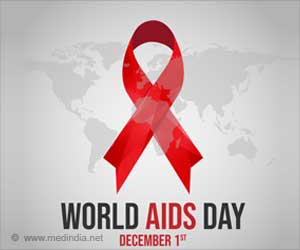Low risk patients with mild hypertension do not benefit from hypertension treatment, reveals a new study. Therefore, physicians need to consider the side effects of drugs when initiating treatment in low-risk patients with mild hypertension.
Highlights
- Anti-hypertensive treatment not beneficial to low risk patients with mild hypertension
- Physicians need to be cautious when initiating treatment in low-risk patients with mild hypertension
- Anti-hypertensive treatment in such patients are associated more with drug side effects such as syncope, acute kidney injury and hypotension
Read More..
In this study, electronic health records of about 38, 286 low-risk patients with mild hypertension were used to study the effect of medication on hypertension .
The research team found that there was absolutely no evidence between the exposure to anti-hypertensive treatment and mortality or cardiovascular disease. However, there was evidence that treatment could increase the risk of adverse events, such as hypotension, syncope, and acute kidney injury.
The results suggest that physicians need to be cautious when initiating treatment in low-risk patients with mild hypertension, particularly because such an approach may affect millions of individuals with little evidence of benefit.
Details of the Study
This is a cohort study, where the data obtained was extracted from the Clinical Practice Research Datalink, from January 1, 1998, through September 30, 2015.
Participants who had any history of CVD or CVD risk factors were excluded from the study and for those whose follow-up records became unavailable or when they experienced an outcome of interest have exited from the cohort study.
Prescription of Anti-hypertensive Medication
A logistic regression model was used to construct propensity scores for the likelihood of treatment. Using the nearest-neighbor method, individuals who were treated within 12 months of diagnosis were matched to untreated patients by propensity score.
A total of 19,143 treated patients (mean [SD] age, 54.7 [11.8] years; 10 705 [55.9%] women; 10 629 [55.5%] white) were matched to 19 143 similar untreated patients (mean [SD] age, 54.9 [12.2] years; 10 631 [55.5%] female; 10 654 [55.7%] white).
During a median follow-up period of 5.8 years (interquartile range, 2.6-9.0 years), no evidence of an association was found between anti-hypertensive treatment and mortality (hazard ratio [HR], 1.02; 95% CI, 0.88-1.17) or between anti-hypertensive treatment and CVD (HR, 1.09; 95% CI, 0.95-1.25).
Treatment was associated with an increased risk of adverse events, including:
- Hypotension (HR, 1.69; 95% CI, 1.30-2.20; number needed to harm at 10 years [NNH10], 41)
- Syncope (HR, 1.28; 95% CI, 1.10-1.50; NNH10, 35)
- Electrolyte abnormalities (HR, 1.72; 95% CI, 1.12-2.65; NNH10, 111), and
- Acute kidney injury (HR, 1.37; 95% CI, 1.00-1.88; NNH10, 91)
This pre-specified analysis shows that there is no evidence to support guideline recommendations that encourage initiation of treatment in patients with low-risk mild hypertension.
The results showed that there was an increased risk of adverse events. This shows that physicians should exercise caution when following guidelines that generalize findings from trials conducted in high-risk individuals to those at lower risk.
Source-Medindia
















